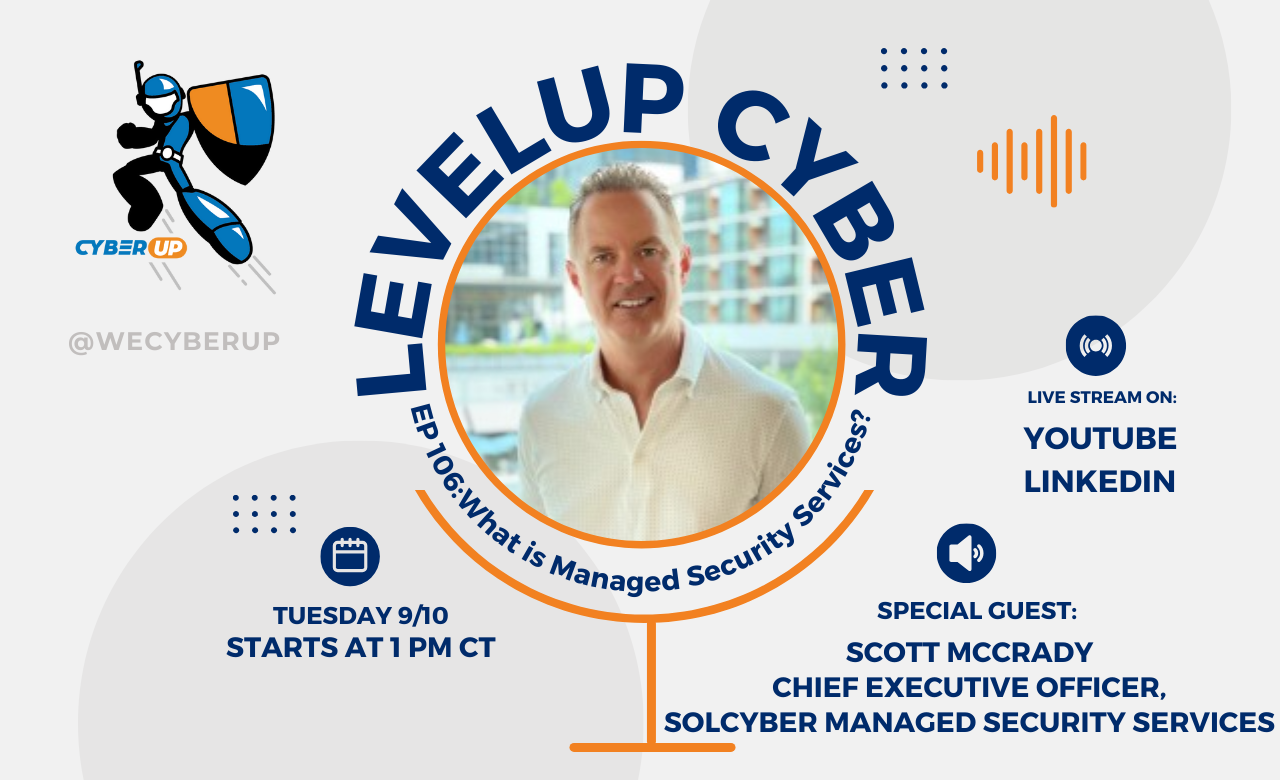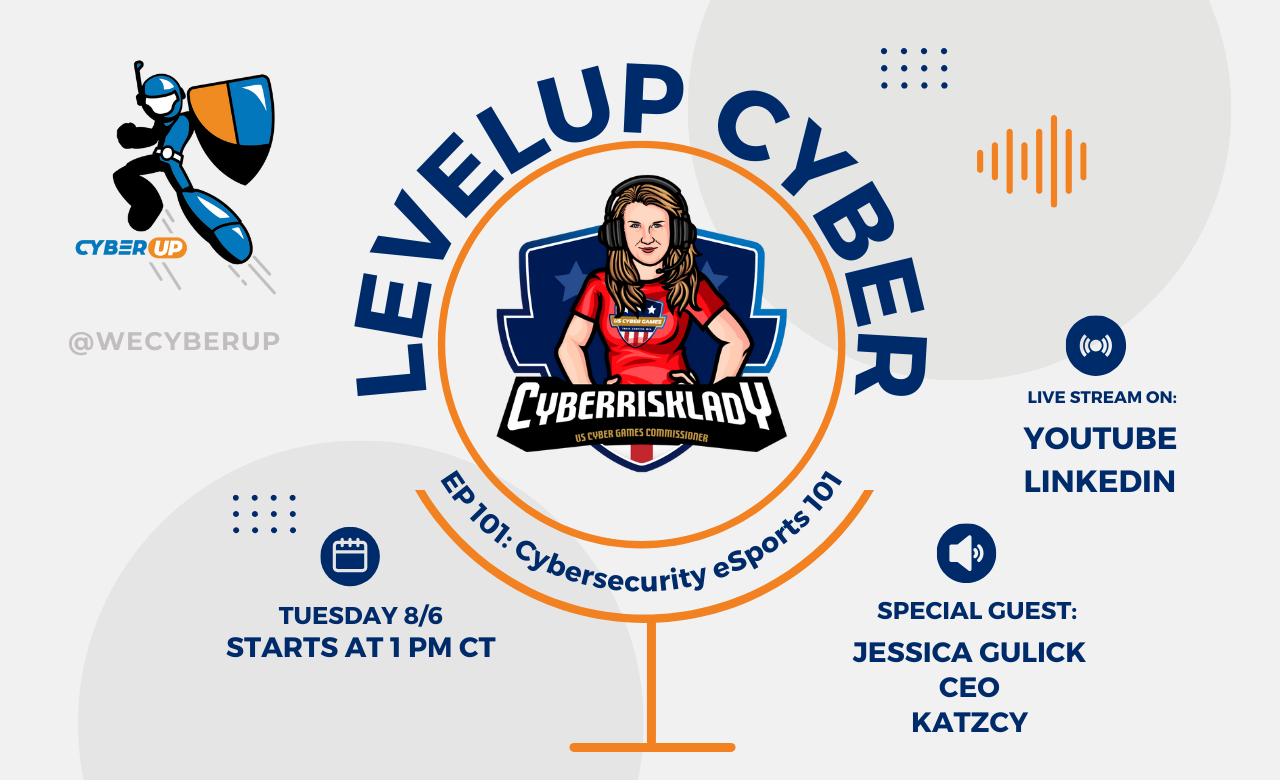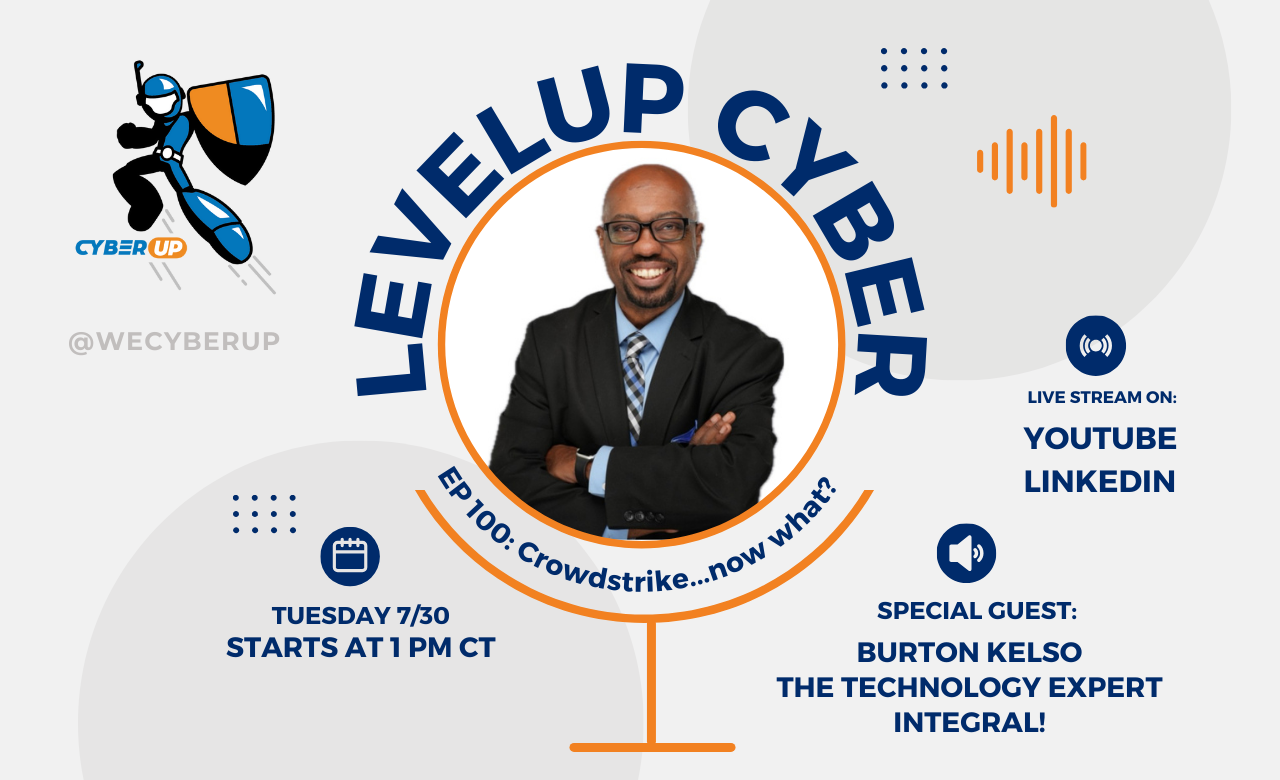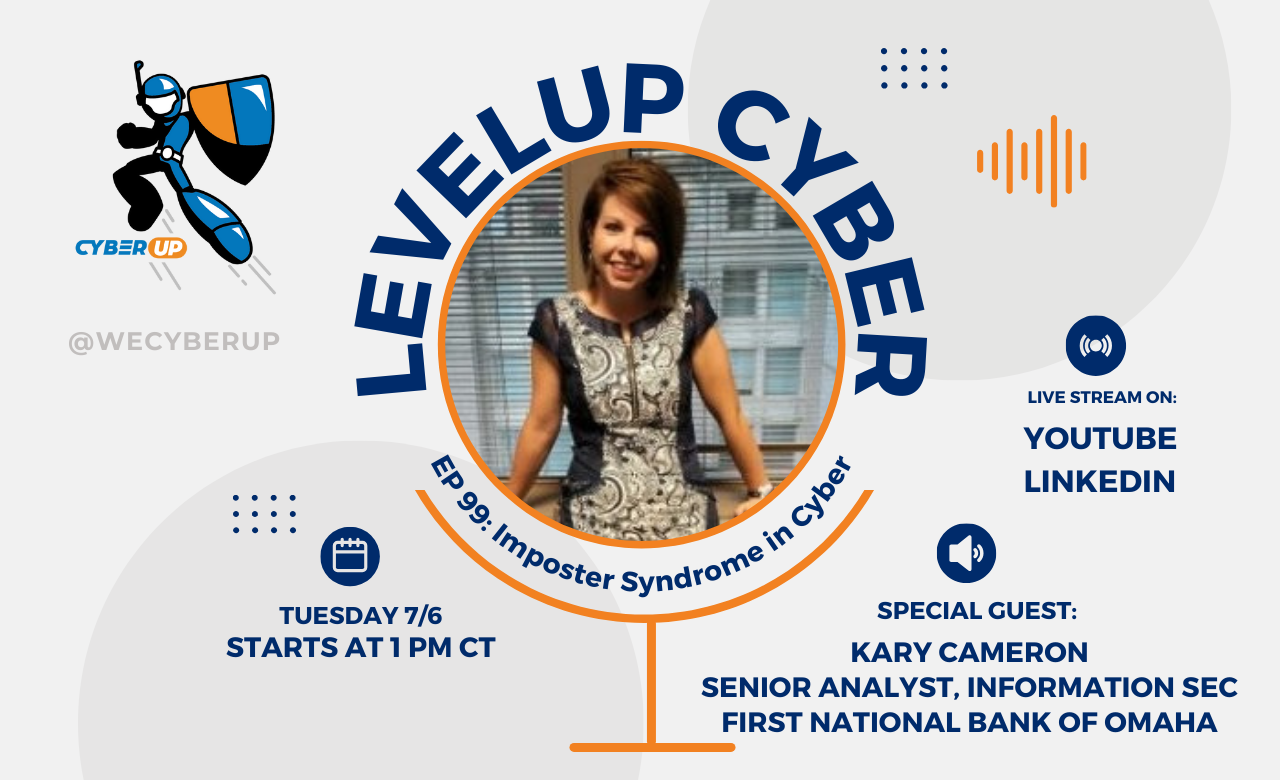.png)
Cy Says Blog & Podcast
Posts about:
cybersecurity (2)
.png)
.png)
Ep 107: Breaking Into Cyber...The International Perspective

Ep 106: What is Managed Security Services with Scott McCrady

Ep 105: Mentorship & Cybersecurity with Jennifer Cox
.png)
Ep 104: API Security 101 with Jeremy Snyder
.png)
Ep 103: How to Start Skills Based Hiring with Helen Patton
-3.png)
Ep 102: Hacking Your Cyber Career with Reanna Schultz

Ep 101: Cybersecurity Esports 101 with Jessica Gulick

Ep 100: LevelUp Cyber w/Burton Kelso - Crowdstrike...now what?

